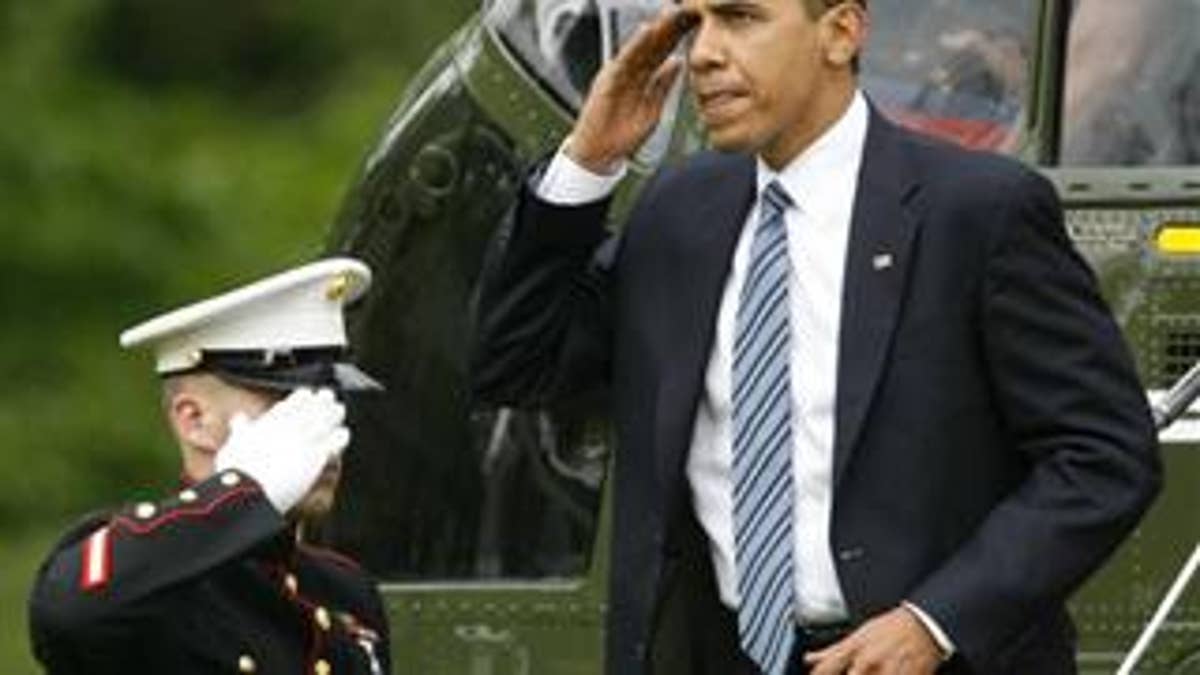
Candidate Obama promised to bring change to Washington, campaigning early against President Bush's anti-terror tactics.
But critics and supporters suggest the events of the past week show Washington is changing President Obama, as he revises -- but doesn't overhaul -- some of Bush's key national security policies.
Obama restarted the military tribunals established by his predecessor and blocked the release of photos that show U.S. troops abusing detainees, in both cases riling liberals who are important campaign-year foot soldiers and fundraisers.
But GOP consultant Doug Heye told FOX News it's not unusual for a candidate to be a candidate -- and for a president to be a president.
"When you're a candidate, you can be for anything, you can be against anything," Heye told FOX News. "But when you're in office, you're the 'Decider,' as President Bush said. That means you got to make tough decisions for what's in the best interest of the nation."
Obama defended his moves by saying the tribunals are "the best way to protect our country, while upholding our deeply held values," and the photos, if released, would "further inflame anti-American opinion" and endanger U.S. forces in Iraq and Afghanistan.
The echoes of Bush would have been inconceivable when Obama was on the campaign trail, declaring his intent to end the Iraq War within 16 months of taking office and closing the detention facility at Guantanamo Bay.
But Obama has slowed the pace of withdrawal from Iraq and is sending more troops to Afghanistan. His decision to revive the military tribunals at Guantanamo may prevent him from closing the prison in January as scheduled, because experts say it is unlikely the process can be wrapped up by the deadline.
Furthermore, the Obama administration announced this week that it would not intervene in any prosecution of military soldiers or personnel who admit to being gay, despite Obama's pledge to repeal the "Don't Ask, Don't Tell" policy.
"These recent decisions are disheartening," said Jameel Jaffer of the American Civil Liberties Union. "He has shown backbone on some issues and not on others."
But Democratic consultant and former congressional candidate Nick Leibham compared Obama's reversals to Leibham's days as a criminal prosecutor, when "oftentimes, where I started wasn't always where I ended up" because of emerging facts.
"That's what you're seeing with the president," he told FOX News. "He has a different set of advisers than he did out on the campaign trail. He's listening to all points of view. And as president of the United States, he now has access to all the intelligence and all of the confidential briefing materials.
"His thinking has evolved. He's doing what's right for America, and we should applaud that because I think that's a refreshing change."
White House spokesman Robert Gibbs pushed back against reporters who noted the changes in Obama's national security strategy. Gibbs said that on Monday he was being asked why the president insisted on being "so opposite of George Bush in all these questions, and on Friday I'm answering questions about why we are so much like George Bush on all these questions."
"I'll let you guys discern what inflection point, what period of day, that all changed," Gibbs said.
Leibham said the difference between the two is quite clear.
"The break here is President Bush would have the same line of thinking on Monday as he had on Wednesday irrespective of what the facts showed on Tuesday," he said. "President Obama isn't such a rigid ideologue and the American public recognizes that and that's why he's so popular."
Heye had a different interpretation: Because of Obama's high approval ratings, he's able to get away with the reversals, the GOP consultant said.




